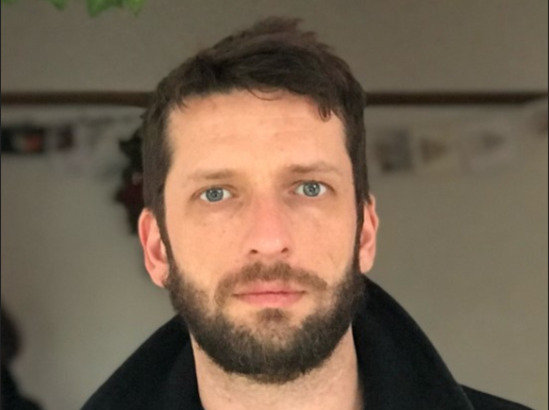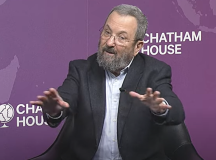Jack Omer-Jackaman is the author of Caught Somewhere Between Zion and Galut: Zionism, Israel and Anglo-Jewry’s Identity, 1948-1982 (Vallentine Mitchell, 2019) and deputy editor of Fathom. This opinion piece was delivered as a paper at the inaugural conference London Centre for the Study of Contemporary Antisemitism in September 2022.
Jorge Luis Borges, the great Argentine writer, when ‘accused’ by his fascist fellow traveller enemies of being Jewish and of having ‘hidden’ the fact from an unsuspecting Argentine public, responded by rejecting the idea that the charge conveyed any disgrace at all.
I take a similar attitude when I am accused of being a Zionist.
I will put the matter simply: as a non-Jewish leftist, my leftism dictates that I am a Zionist. A critical Zionist for sure: a Meretznik; a Zionist who advocates for Palestinian rights and statehood; a Zionist who thinks that neither Zionism nor the contemporary state of Israel require of us propaganda or hagiography. But a Zionist nonetheless, and thus unfit for progressive company. So be it. Their anti-Zionism is foundational to their leftism, just as it is antithetical to mine.
The bulk of the energy in response to Anti-Zionist antisemitism is focussed on the identification and combatting of it, and rightly so. My own work takes a different, though complimentary, approach: to repopularise leftist non-Jewish Zionism. This was not always so. Of the left all my life, I inherited anti-Zionism as an unquestioned shibboleth from my political milieu and was as convinced of its necessity as anyone else.
If I credit myself with anything it is only with a scholarly willingness as a postgraduate student to gradually allow the intrusion of some difficult facts into my worldview, facts which led to new understandings about Jewish history and a new relationship with Zionism. First, that not only had European Jewish emancipation been inconsistently and incompletely realised, but that it had provoked an intellectual and popular counter-revolution whose ideas, while by no means predestined to lead to genocide, at least allowed for genocide in their very foundations. Second, that the passage of time and an often-wilful amnesia had torn Zionism from its original contexts. We must bring those contexts back. As Herzl noted, while Jews everywhere had contributed only glory and renown to their respective European nations they had, everywhere, been rejected, othered, libelled, segregated, ostracised, exploited, extorted, expelled, kidnapped, converted, assaulted, murdered, massacred, culminating in an attempt at a comprehensive murder to the last child.
My exposure to this history led to the conclusion that Zionism’s own assessment – that state sovereignty elsewhere than Europe and a mass exodus from the continent – though revolutionary, was actually only an eminently sensible and just recipe for survival. Not an imperialist land grab, not a messianic crusade. Survival. And, gloriously and crucially, survival as Jews. This is Zionism to me, and this is the argument I take to the demonisers and delegitimisers on the left.
My critics will use the Arendtian argument that mine is the Netanyahuist reading of Jewish history: that antisemitism is eternal, everywhere. Nonsense. My Zionism does not rely on it being eternal and universal. It relies only on it being endemic, widespread, and lethal enough to justify Zionism’s stated aims. The more learned of my adversaries will then bring me Salo Baron, perhaps the greatest Jewish historian of all. Baron, they rightly note, demolished the ‘lachrymose’ school of Jewish history, that which tells the story of a great people only as a history of its persecution.
But here is the thing: the anti-Zionists mis-summarise Baron, either duplicitously or from ignorance. His injunction to consider a brighter and more realistic assessment of the European Jewish experience was meant to apply to the medieval or pre-modern period which was, at his time of writing, universally maligned. Of the period after 1789, Baron was, correctly, far less sanguine. In fact, in his work before the Holocaust, Baron’s picture of the insecurity of European Jewish life varies very little from the Zionist interpretation. He had more faith in the ultimate reason and humanity of gentile Europe than did the Zionists, and I would argue that for all Baron’s genius, unrealistically so.
In conversation with the anti-Zionist, then, I simply list some of the conditions prevailing on the Jews of Europe between the Dreyfus Affair and the rise of the Nazis, the period between the inauguration of Political Zionism and its darkest hour.
– There is the Dreyfus Affair itself, which makes a pretty good case for the idea that France, the cradle of emancipation and the heart of civilised Europe, is rejecting the idea of the Jew as citizen.
– In Central Europe, the exponential growth in racial antisemitism – an entirely new phenomenon, divorced as it was from previous, religiously inspired Jew hatred. This growth was led, incidentally, by many former leftists: Wagner, Fourier, and Wilhelm Marr, the coiner of the term antisemitism itself.
– In Russia, we have a Tsarist regime which enslaves, restricts, and immiserates its millions of Jews, and a populace which proves itself capable, time and again, of rampages of rape, murder, and plunder.
– A Russian Civil war and its extension into a Ukrainian separatist conflict, which brought truly catastrophic violence and suffering. A war, indeed, in which the one thing which truly united Reds, Whites, Ukrainian nationalists and Polish forces was a propensity to murder Jews.
– The emergence of nascent nationalist movements amongst suffering peoples whose rage and agony were, in any number of places, misdirected towards Jews.
– A world war whose humanitarian impact was felt by everyone, but disproportionately by Jews. The minority provisions of the treaties effecting its cessation were then largely ignored, especially in Poland with its millions of Jews.
– Not to mention a Bolshevik revolution which first emancipated the Jews and outlawed antisemitism before then first smashing every facet of organised Jewish life, outlawing Judaism, and then succumbing to an even more deranged antisemitic turn under Stalin.
– And, crucially, the restrictions on Jewish immigration imposed by the United States, Britain, and others.
We must not allow these realities to be conveniently ignored by the anti-Zionist. The great Zeev Sternhell’s metaphor that Europe vomited up its Jews contains more than just pungent rage. I would invite the leftist anti-Zionist to put himself in the place of a European Jew of the late 19th and early-to-mid-20th centuries and ask ‘what would I have felt? What would I have thought? What would I have done?’
And all this before one even broaches the unprecedented genocide of the Holocaust, significant for our purposes here, beyond its own horror, because of the question it posed about the viability of post-Holocaust diaspora life for the majority of Jews. After the war, antisemitism in the allied nations increased. Those same nations showed precisely zero appetite to provide a home to the survivors, preferring in the British case (the Labour British case, incidentally), that these shattered souls return to the bloodlands. Places where not only were they met with murder and theft, but where even allies, even rescuers of Jews, declared they no longer had any place.
What should the leftist make of all this? To be on the left means, in sophomoric terms but no less true for it, to be on the side of the underdog. I am thus a Zionist because I am a leftist, not in spite of it. In its affirmation of a viable Jewish peoplehood, and its sober and rational recipe for Jewish survival, Zionism demands leftist support for European civilisation’s ultimate underdog.
I am a pragmatist. I know how deep the rot goes on the left. At the exalted level of the academy, we have lost for the time being. What the German radical Rudi Dutschke called the ‘long march through the institutions’ of a certain type of leftism is largely complete.
No, the hope, as ever, and as Orwell so presciently noted, lies with the proles – in this context, ordinary, well-meaning leftists. I think much of the anti-Zionism amongst this group is, to use an American political formulation, a mile wide and an inch deep. It is reflexive and axiomatic, a kind of default anti-Zionism. It is not, I think, deeply held. Therefore, it is open to persuasion.
We know we will not eradicate anti-Zionist antisemitism: as writers from Jean Paul Sartre to Fathom’s Eve Garrard have shown, antisemitism is simply too pleasurable to too many people for that. We know too how protean, adaptable, and immune to its internal contradictions it is. It is what Albert Memmi described as ‘a living thing of multiple heads that speaks with a thousand grimacing faces.’
We know, too, that many of the newer movements of the left whose vibrancy and urgent questioning of racial injustice are understandably attractive to young people, have serious problems with antisemitism and are perpetrators of lazy, binary approaches to Israel-Palestine. But we cannot abandon these young people.
About the enemies of the state of Israel, the Jewish homeland, it says much about the moral degradation to which much of the left has sunk that we cannot recognise their reactionary and eliminationist character. My own damascene conversion, if I can identify one specific moment, came with Judith Butler’s notorious proclamation that Hamas and Hezbollah must be considered ‘part of the global left’.
We must encourage in young leftists the virtue of questioning orthodoxy, avoiding the left’s set menu and deciding their positions à la carte.





































